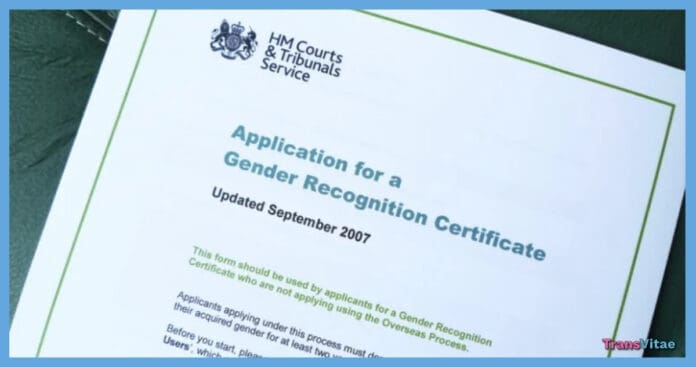In a sign of growing momentum for transgender rights in the United Kingdom, newly released government data reveals that more than 12,000 Gender Recognition Certificates (GRCs) have been granted since late 2022, nearly doubling the total issued in the previous 18 years combined.
According to figures reported by the UK’s Gender Recognition Panel, the surge followed administrative reforms aimed at simplifying the application process, lowering the cost, and increasing accessibility. In contrast to earlier years when the process was criticized for being prohibitively difficult and invasive, recent changes have allowed more trans individuals to access legal gender recognition with significantly less bureaucracy.
For transgender people in the UK, receiving a Gender Recognition Certificate is a crucial step toward having their identity legally respected. A GRC allows a person to amend the sex marker on their birth certificate and, in many cases, access legal rights tied to accurate documentation, such as marriage certificates, pensions, and privacy protections.
The previous system, introduced under the Gender Recognition Act 2004, required a psychiatric diagnosis of gender dysphoria, two years of documented “living in role,” and a panel decision process that many trans people found demeaning. Advocates argued it treated trans people as suspects rather than citizens, forcing them to prove their gender identity under scrutiny rather than trusting their lived experience.
But since the UK government overhauled the process in late 2022, allowing online applications, removing the need for a medical diagnosis, and cutting the cost from £140 to £5, there has been a dramatic increase in both applications and approvals.
Trans rights organizations welcomed the data as a long-overdue affirmation of identity for thousands of individuals. “These numbers show what happens when a government begins to trust trans people and makes basic legal recognition accessible,” said a spokesperson for the UK-based charity Gendered Intelligence. “Legal recognition doesn’t just reflect someone’s identity, it protects their dignity.”
However, the data also comes amid rising political tension around trans rights in the UK. Despite the reforms to the GRC process, broader concerns remain about healthcare access, rising hate crimes, and ongoing efforts by anti-trans groups to roll back legal protections.
Trans people and their families have responded to the latest numbers with a mix of hope and cautious optimism. “It took me five years to get through the old system,” said one trans woman from Manchester, who received her certificate in 2023. “I’m glad others won’t have to wait as long, or be questioned about every detail of their lives.”
Though not a silver bullet, legal gender recognition can reduce everyday harm. From safer travel to job applications, it allows trans people to move through life with fewer barriers. And as more countries reconsider the burdens they place on trans citizens, the UK’s evolving policy landscape offers a glimpse at what’s possible when governments listen and respond.
As the fight for dignity and self-determination continues across the globe, the message is clear: recognition matters. And for more than 12,000 people, that recognition has finally arrived.


